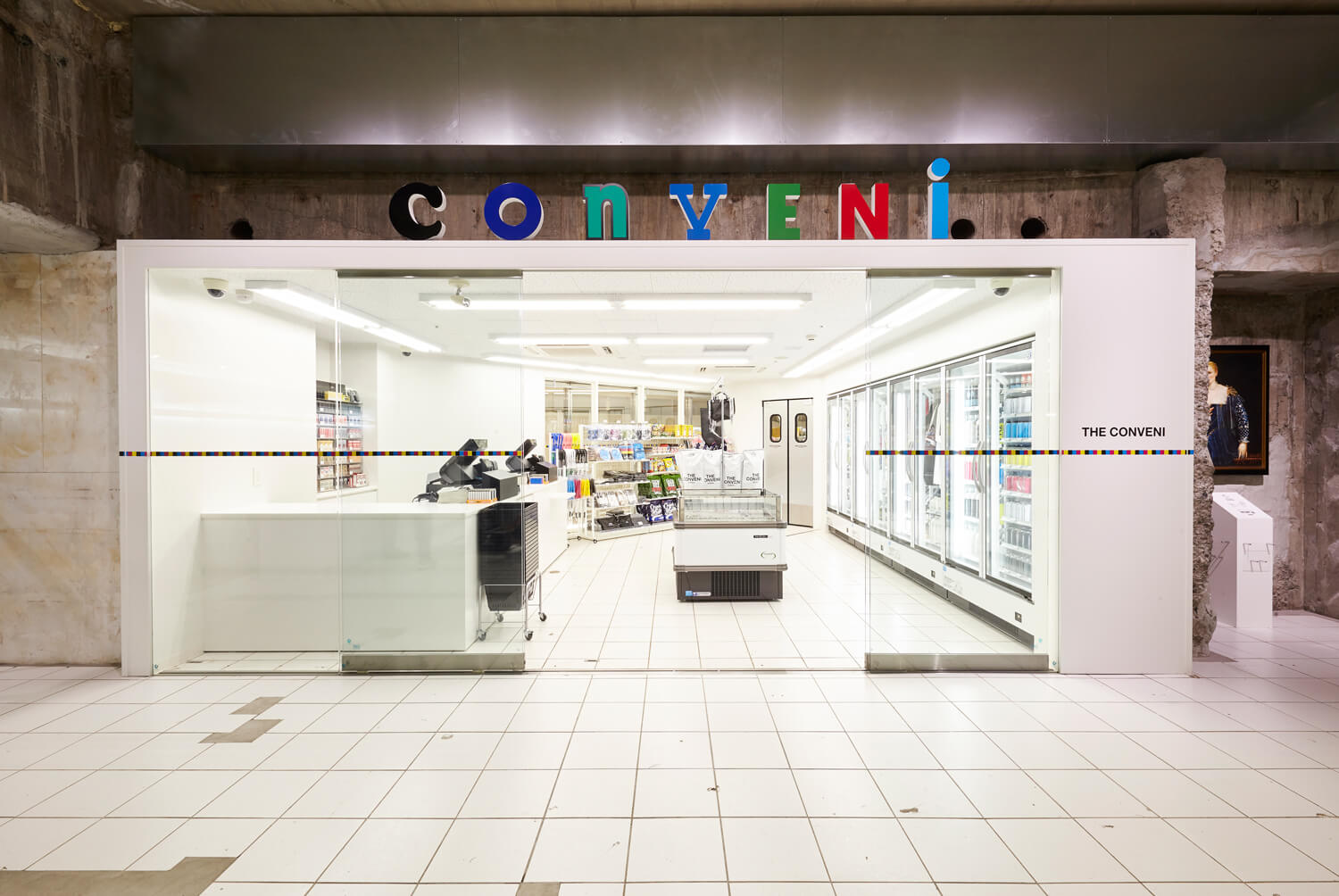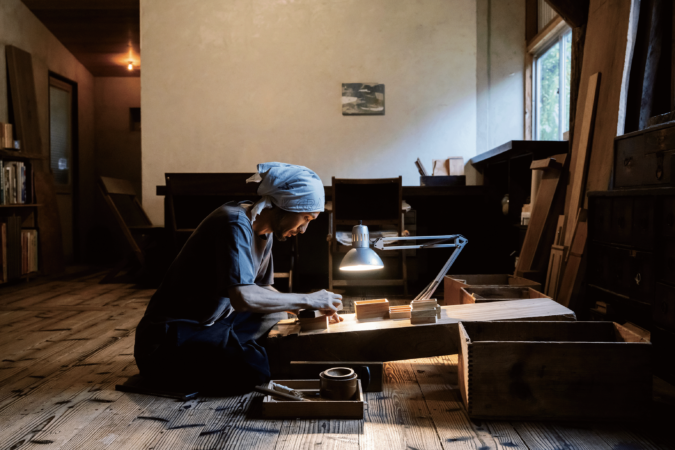In a Tokyo Basement, The Conveni Reinvents the Traditional Clothing Store
The Conveni looks like a traditional grocery store, but for one detail: this Tokyo concept store sells clothing, accessories and souvenirs.

© Atsushi Fuseya(magNese)
The Conveni is the work of the internationally renowned designer Hiroshi Fujiwara (nicknamed the godfather of streetwear), who made the bold move of filling the fridges and shelves with t-shirts and bags alongside simple bottles of water and ‘Conveni’-branded mugs.
The store also sells objects like the Japanese toys Be@rbricks, well known to collectors (particularly for their collaborations with Chanel and Swarovski), as well as items by his own brand Fragment design. The Conveni follows in the footsteps of Park-Ing Ginza, a boutique/café/record shop spread over multiple floors of a car park, also created by Fujiwara. Like its predecessor, The Conveni is a pop-up project: it is due to disappear at the same time as the Ginza Sony Park that houses it, an underground leisure space over four floors, which is due to close at the end of 2020.
The Conveni’s products can be found in the brand’s online shop, or on its Instagram account.

© Atsushi Fuseya (magNese)

© Atsushi Fuseya (magNese)

© Atsushi Fuseya (magNese)
TRENDING
-
A Craft Practice Rooted in Okinawa’s Nature and Everyday Landscapes
Ai and Hiroyuki Tokeshi work with Okinawan wood, an exacting material, drawing on a local tradition of woodworking and lacquerware.

-
Hiroshi Nagai's Sun-Drenched Pop Paintings, an Ode to California
Through his colourful pieces, the painter transports viewers to the west coast of America as it was in the 1950s.

-
The Tattoos that Marked the Criminals of the Edo Period
Traditional tattoos were strong signifiers; murderers had head tattoos, while theft might result in an arm tattoo.

-
‘Shojo Tsubaki’, A Freakshow
Underground manga artist Suehiro Maruo’s infamous masterpiece canonised a historical fascination towards the erotic-grotesque genre.

-
‘Seeing People My Age or Younger Succeed Makes Me Uneasy’
In ‘A Non-Conformist’s Guide to Surviving Society’, author Satoshi Ogawa shares his strategies for navigating everyday life.





